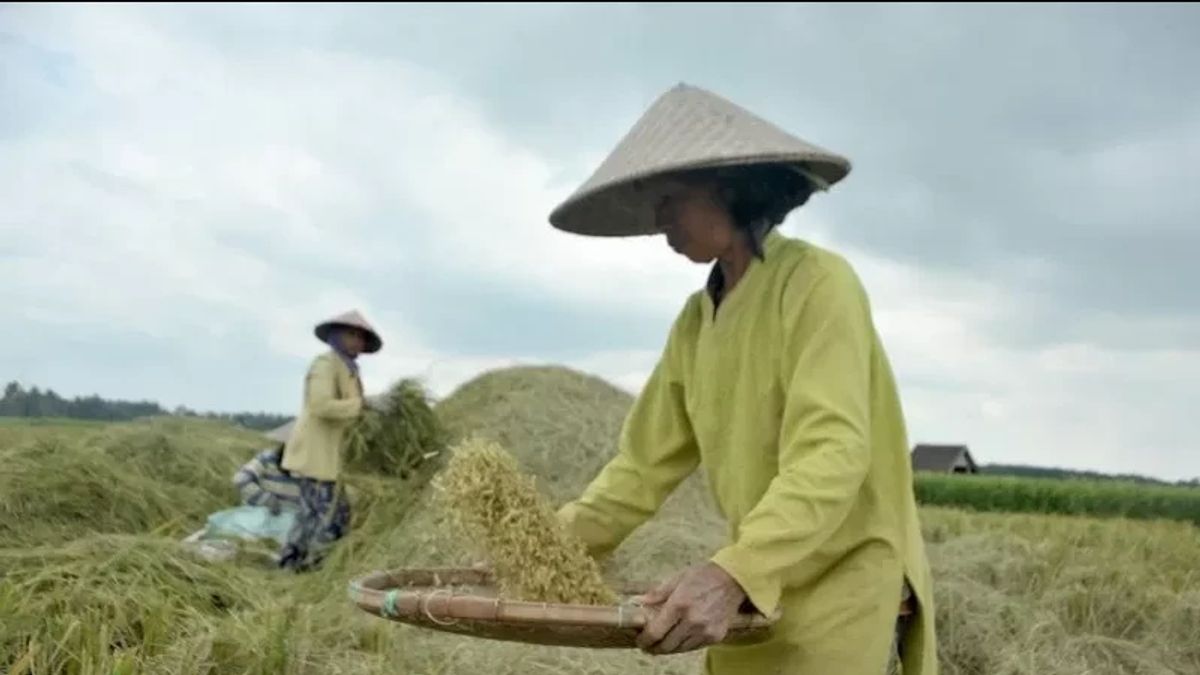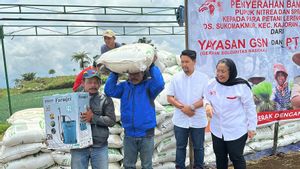JAKARTA - The Indonesian Farmers' Union (SPI) regrets the policy made by the National Food Agency (Bapanas) regarding the price of the upper limit on the purchase of grain or rice. The farmer's article remains unprofitable even though the price of grain goes up.
As is known, the government through Bapanas issued a circular regarding the price of the limit on the purchase of grain or rice. Through circular No.47/TS.03.03/K/02/2023, Bapanas set an upper limit on the purchase price of grain and rice to control the rate of grain or rice prices.
General Chairperson of SPI Henry Saragih regretted that Badanas did not involve farmer organizations in policy formulation. According to him, this agreement is not representative.
The reason, continued Henry, was that there were no representatives from farmers, not even from the Ministry of Agriculture.
"On the other hand, Bapanas actually involves food corporations, such as Wilmar Padi. The involvement in determining the upper limit on prices is a space for large-scale food corporations to be able to buy grain from farmers at low prices," he said in an official statement, Wednesday, February 22.
Henry said, the cheap grain from this farmer was processed and distributed to premium standards and premium prices or high prices.
"It was agreed that the lower price was Rp4,200 and the upper limit price of Rp4,550 would be detrimental to farmers, because it tends to ignore the facts that there has been an increase in production and capital costs borne by farmers," he said.
For example, continued Henry, the increase in fertilizer prices, increase in land leases, increase in workers' wage costs for farmers who do not work on their own rice fields.
"SPI itself has previously proposed a revision of the Government Purchase Price (HPP) which was last revised in 2020, because it is no longer suitable for the costs borne by farmers," he said.
According to Henry, this is important because it is currently entering the main harvest period, so the determination of the appropriate price is very crucial.
"Our HPP proposal is Rp5,600 per kg. What is in the spotlight is the wages for workers, land rental, and equipment rental. The workforce wage is now Rp120,000 to Rp150,000 per day, continue to lease land, whether there is land that is rented for Rp3 million to Rp4 million per hectare," he said.
Not to mention, Henry continued, the rental of Rp. 400,000 per hectare of equipment, generally Rp. 1.5 million. Then, the average cost of harvesting is calculated at Rp. 3 million per hectare, even in other areas there is still a transportation fee.
Henry assessed that this policy will worsen the welfare of farmers and also harm consumers in Indonesia. Reflecting on the rice price fluctuation that occurred in Indonesia during 2022, the problem of rice absorption for government reserves is one of the fundamental problems.
Therefore, according to Henry, the rice absorption policy must pay attention to the welfare of farmers and consumers.
"In terms of farmers, there must be a guarantee of a proper price in accordance with the costs borne by farmers. Meanwhile, for distribution to consumers, there needs to be a control over the distribution of rice to the community," he concluded.
The English, Chinese, Japanese, Arabic, and French versions are automatically generated by the AI. So there may still be inaccuracies in translating, please always see Indonesian as our main language. (system supported by DigitalSiber.id)











